Text
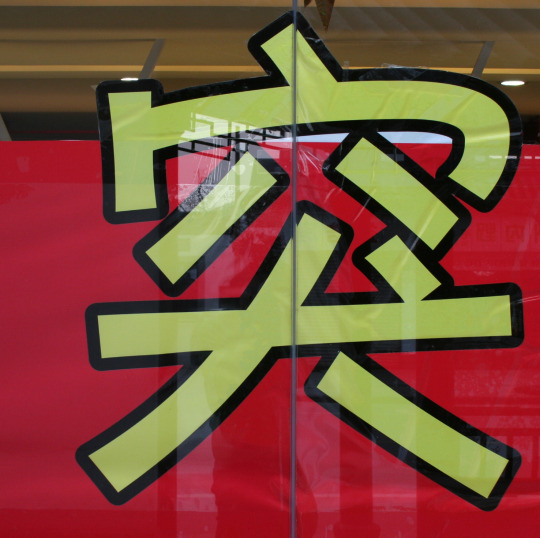
突 = to dash or move forward quickly; abruptly; suddenly; unexpectedly, protrude
It's all about things moving forward and unexpectedly with this one!
Random words that come to mind include unexpectedly or out of the blue 突然 (tūrán), as well as conflict 冲突 (chōngtū) or 突出 (tūchū), something that is prominent or that sticks out.
突发 (tū fā) is interesting as well — it means to break out or appear unexpectedly... like 疾病突发 (jí bìng tū fā), the outbreak of an illness.
It's also a cute onomatopeia for things that have a tapping sound or that chug along, like when your heart goes pit-a-pat (你的心突突地跳, nǐde xīn tūtū de tiào).
#mandarin#learn mandarin#chinese#language learning#learning chinese#chinablr#mandarinblr#studyblr#普通话#国语#中国#汉字#中文#汉语#hanzi#chinese characters
122 notes
·
View notes
Text

九 = jiǔ = nine
A gorgeous neon 九 from a restaurant in Taipei!
There's not much to say about the character... 9 is 9. But we can take a detour here to talk about discounts in Chinese, which work the opposite way than the western world and are thus a bit confusing at first: instead of telling you how much the discount is, they tell you how much percentage of the original price you have to pay.
So for instance, if something has a 10% discount, you'd say 九折 (jiǔ zhé), as in, you only paying 90% of the price. The lower the number before the 折 character, the higher the discount. Takes a bit of time to get used to!
There are a few expressions that say "most likely" using 9, like 十之八九 (shí zhī bā jiǔ) or 十有八九 (shí yǒu bā jiǔ). Both of these hint at something happening 8 or 9 times out of 10, so it's quite likely it'll happen.
And lastly, 九死一生 (jiǔ sǐ yī shēng) literally translates into "something who died nine times and is still alive"... so you'd use it if you'd just had a narrow escape. 😅
102 notes
·
View notes
Text

鸟 = niǎo = bird, radical, meaning component
Birds, birds, birds! 🦤 I've recently taken up 观鸟 (guān niǎo) birdwatching, so this is a topic dear to me.
Lots of things related to birds have this character or component, like beaks 鸟嘴 (niǎo zuǐ), birdsong 鸟鸣 (niǎo míng), or descriptions of types of birds, like 候鸟 (hòu niǎo) for migratory birds or 夜鸟 (yè niǎo) for nocturnal bird.
And of course, you'll the see the character on tons of bird's names, like magpies 鹊 (què), mandarin ducks 鸳鸯 (yuān yāng), storks 鹳 (guàn) or cormorants 鸬鹚 (lú cí) — notice how the 鸟 in those names is a component of the character, and not the whole character. You can tell they have something in common, right?
What's your favourite bird? Find out how it's written in Chinese, and see if you can spot the 鸟 character on its name!
There's the same "to kill two birds with one stone" expression in Chinese, it's just 一石二鸟 (yī shí èr niǎo), literally, one stone two birds — so simple!
#birdwatching#chinese characters#chinese#china#langblr#language learning#studyblr#hsk#pinyin#普通话#中文#学习中文#汉字#汉语
49 notes
·
View notes
Text
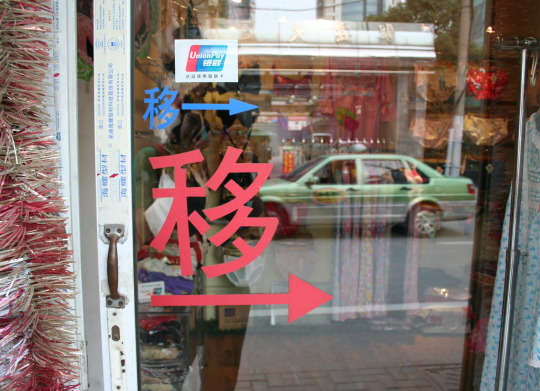
移 = yí = to move, to shift, to change, to alter, to remove
This is not a normal door that you push or pull to open — instead, you "移" it to the right, like the arrow says.
移 has this moving quality to it, from one place to another. 移民 (yí mín) is a migrant, 移植 (yízhí) means to transplant something, and 移液器 (yíyèqì) is a pipette... you know, the long tube you'd use in a lab to transport a sample from one container to another.
移动 (yí dòng) is also the adjective for "mobile", as in something that you can move around. 移动通讯 (yídòng tōngxùn) would be mobile communications, and 移动电话 (yídòng diànhuà) is the formal way to say mobile phone... though of course, everyone just says 手机 (shǒujī) instead.
There's a saying, 移花接木 (yíhuā jiēmù), which literally means "to transplant a flower onto a tree"... and which means, to surreptitiously replace something with something else. It doesn't sound too surreptitious to me though... 😅
#mandarin#learn chinese#mandarinblr#studyblr#langblr#studyspo#hsk#china#shanghai#hanzi#languages#polyglot#普通话#汉字#中文#汉语
164 notes
·
View notes
Photo
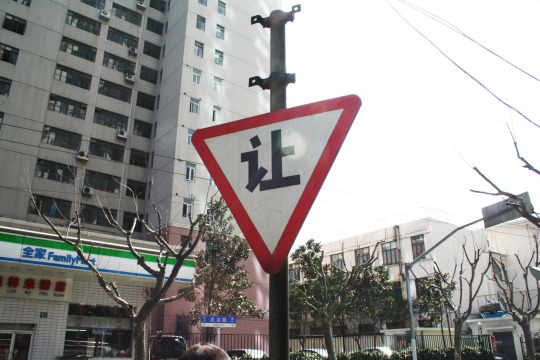
让 = ràng = to allow or to make someone do or feel something, to give way, to concede, to invite...
They say 让 is the biggest causative verb in spoken Chinese, so this is something you’ll hear a lot, whenever someone lets you do something, or asks you do do something for them.
The usage goes as follows: Subj. + 让 + Person + Predicate, in which the predicative is a verb or adjective.
You can use it to say, “Mom won’t allow me to go”, 妈妈不让我去 (māmā bù ràng wǒ qù) or “They didn’t let him explain”, 他们不让他解释 (tāmen bù ràng tā jiěshì) or “His words made me disappointed” 他的话让我很失望 (Tā dehuà ràng wǒ hěn shīwàng)... These are all different sentences with varied meanings, but do you see the link between them? There’s always “someone making something to someone else”.
Besides this construction, there are other words that include 让 inside them too, and they all seem to tie to this idea of conceding or allowing someone to do something. For example, 让坐 (ràng zuò) to give your seat to someone else, 承让 (chéng ràng) to concede or let someone win, or 避让 (bì ràng) to avoid something or yield in traffic.
#chinese#grammar#chinese characters#hanzi#learning chinese#studyblr#langblr#chineseblr#hsk#learn languages#pinyin#shanghai#中文#学习中文#汉字#汉语
176 notes
·
View notes
Text
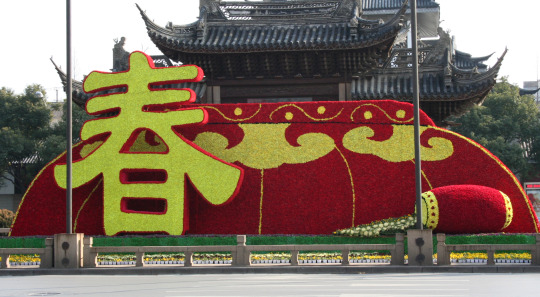
春 = chūn = Spring
新春快乐!Happy New Year, everyone!
Spring Festival 春节 (chūnjié) was just a few weeks ago, and I confess I cried a little watching the CCTV gala 央视春晚 (yāngshì chūnwǎn)... though I'm not even sure why!
Predictably, many words with 春 are very descriptive of spring, like the season itself 春季 (chūn jì), spring fever 春困 (chūn kùn) or even spring rolls 春卷 (chūn juǎn)!
And because spring is synonym with love, some words with 春 are also related to sex or love, like aphrodisiac 春药 (chūnyào) or puberty 青春期 (qīngchūnqí), literally, the youthful period.
As for chengyu's, I like this one: 青春不再 (qīngchūn bù zài). Your youth won't return, so one must make the most of their opportunities. I hope you can grab yours and have a good year of the Ox!
PS - What other words do you know with 春? 😊
#chinese#chinese characters#hanzi#learn chinese#mandarin#mandarinblr#langblr#chineseblr#language learning#hsk#chinese studyblr#pinyin#studyblr#spring festival#shanghai#普通话#中文#china#学习中文#汉字#汉语
57 notes
·
View notes
Photo
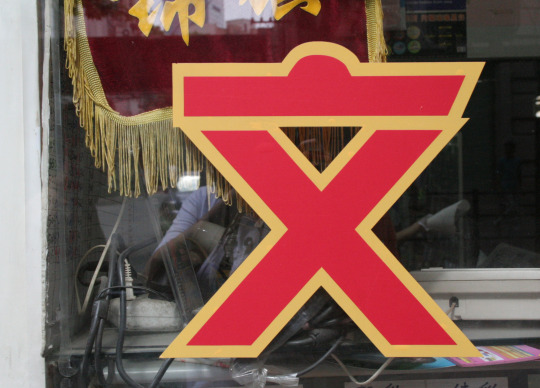
文 = wén = literature, language, culture, writing, formal, gentle
A man with outstretched arms and legs — a simple character with such grandiose meanings, encompassing a range of things of which a civilization 文明 (wén míng) is made of!
Literature 文学 (wén xué), culture 文化 (wén huà), or Chinese itself 中文 (zhōng wén) as in relating to China and its language, are probably some of the main words you’ll see with this character. It’s also used to describe the English language 英文 (yīng wén)... but not other languages, for some reason. 🤔
A lot of the more practical words with 文 are related with writing. You might need to write a school essay 文章 (wén zhāng) at some point, which you can use as an excuse to visit a stationery store 文具店 (wén jù diàn). Make sure your written script 文字 (wén zì) is neat, and include the sources of your citations 引文 (yǐn wén)!
Can you guess what 回文 (huí wén) could mean? Something you write back... It’s a palindrome!
PS - The original character used to have a tattoo on its chest, and although that part is gone now, wén is still used for tattooing 文身 (wén shēn).
PPS - I just passed the HSK4! 🙃 Can’t wait to visit China again someday, practice some speaking skills (which I’m sorely lacking in), take photos of characters and eat ALL the food!
-----------
Edit to add this comment by thistransient:
“You can tack on 文 to other languages (法文/德文/日文etc) but it refers more to reading/writing, 語 for speaking/listening. I've read that 中文 is a 固定搭配, but also relates to 書面 Chinese being standard/universal, vs all the spoken varieties. “英文” from what I can tell is not so deep and has just become a more popular usage than “英語”.”
#chinese#chinese characters#hanzi#learn chinese#mandarin#langblr#chineseblr#mandarinblr#hsk#study chinese#study mandarin#pinyin#shanghai#普通话#中文#学习中文#汉字#汉语
43 notes
·
View notes
Photo
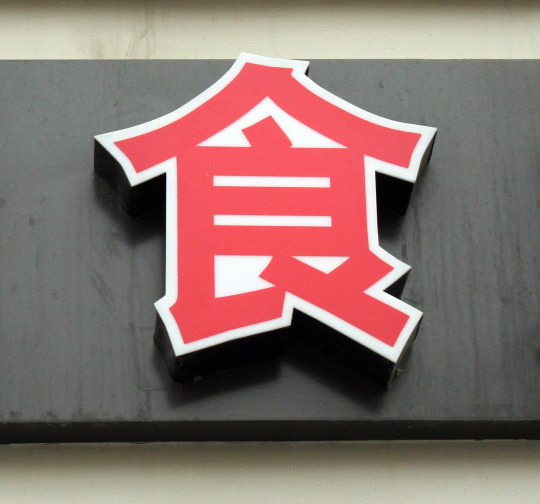
食 = shí = food, to eat, eclipse
They say 食 looks like a sideways mouth (the 人 part on top) eating a bowl of rice on a stand... can you see it?
So it’s a character mostly about food, something you’d add to other characters to make them about the stuff we ingest. For instance, 食品 (shí pǐn) is foodstuff, 食油 (shí yóu) is cooking oil, 食堂 (shí táng) is a dining hall or canteen and 主食 (zhǔ shí) would be your food staples, the main foods of a diet.
食肉 (shí ròu) is someone who eats meat, and 蔬食 (shū shí) is vegetarian... what about 食人 (shí rén)? Who eats people? A cannibal 食人族 (shí rénzú), of course, or maybe a great white shark 食人鲨 (shí rén shā)。
There a lot of idioms using 食, but I like this simple one: 衣食住行 (yī shí zhù xíng) is an expression describing people’s basic needs: clothes, food, a place to live and transport.
PS: For some reason, eclipse words also use 食! Total eclipse is 全食 (quán shí) and solar eclipse 日食 (rì shí).
#chinese characters#chinese#learn chinese#hanzi#mandarin#mandarinblr#chineseblr#language learning#langblr#hsk#pinyin#chinese studyblr#studyblr#shanghai#普通话#中文#学习中文#汉字#汉语
114 notes
·
View notes
Photo
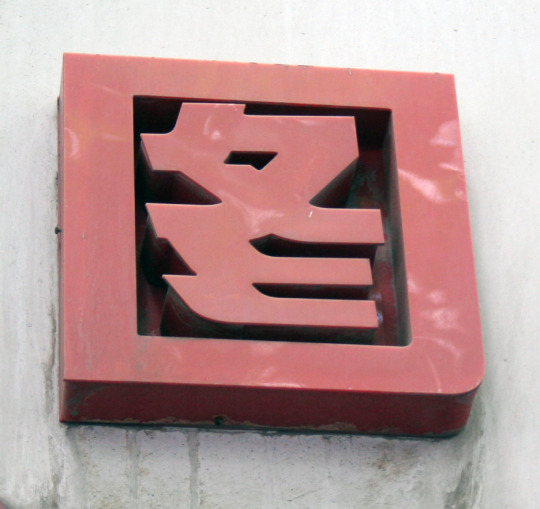
图 = tú = diagram, picture, drawing, chart , map...
It does look like a little picture inside of its frame, doesn’t it? 图 is used for all kinds of image related words. From a map 地图 (dì tú), to a picture itself 图片 (tú piàn), a chart 图表 (tú biǎo), an illustration 插图 (chā tú)... even jigsaw puzzles 拼图 (pīn tú) have this character!
There’s an interesting expression with 图 that reads 按图索骥 (àn tú suǒ jì), which translates literally into something like “to look for a fine horse using just a picture”. Figuratively, it hints that we shouldn’t be stuck in our pre-determined dogmas when searching to understand something unknown — sometimes, we need to look outside of the box and imagine a different paradigm... not just rigidly stick to the picture we were shown.
#mandarin#chinese#hanzi#chinese characters#learn chinese#languages#langblr#chinablr#hsk#studyblr#shanghai#china#普通话#中文#汉字#汉语
43 notes
·
View notes
Photo
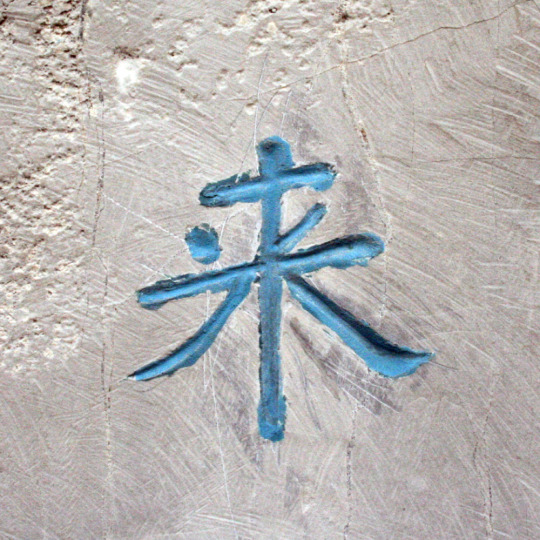
来 = lái = to come, to arrive
Everyone knows this one, right? It's one of the first verbs you'll learn when studying Chinese. Such a simple verb, in such a pleasingly symmetrical character!
The main meaning is of course to come, or to arrive somewhere. You can say "She arrived" (她来了, Tā láile) or ask "When is he coming?" (他什么时候来, Tā shénme shíhòu lái).
As a component though, 来 is part of numerous words that indicate origin or time. 将来 (jiāng lái) is the future, 回来 (huí lái) is to come back, 后来 (hòu lái) is afterwards or later.
You'll often hear the phrase 来得及 (lái de jí) when someone says there's still time, or the opposite, 来不及 (lái bu jí) when there's not enough time left. Check out a more complete list on Ninchanese.
Finally, an expression: 来日方长 (lái rì fāng cháng), translated into something like "the day that is coming is long" and meaning, we can deal with that later. :)
#mandarin#learn mandarin#chinese#language learning#learning chinese#chinablr#mandarinblr#studyblr#普通话#国语#中国#汉字#中文#汉语#hanzi#chinese characters
131 notes
·
View notes
Photo
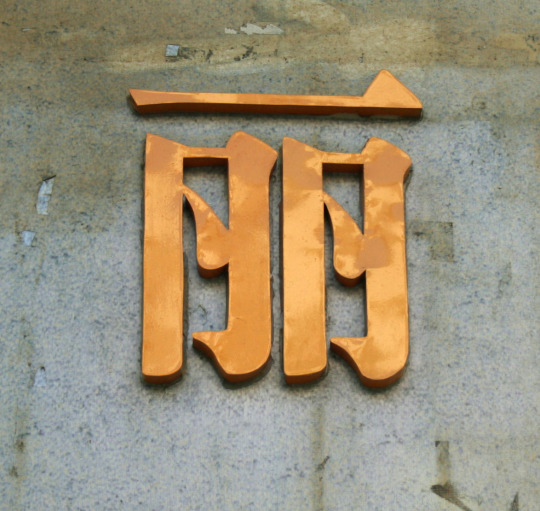
丽 = lì = beautiful
Sooo many words for describing beauty use the 丽 character, and the first one you’ll read about is likely to be 美丽 (měi lì), or beautiful. You’re also likely to hear 华丽 (huá lì) or 绚丽 (xuàn lì) for gorgeous, 瑰丽 (guī lì) for magnificent, 秀丽 (xiù lì) for pretty... you get the idea.
Sometimes 丽 is also used as a phonetic component to replace “li” or “ri” sounds, like in the word for the flower dahlia 大丽花 (dà lì huā), the indian clothing sari 纱丽 (shā lì), or the margarita cocktail 玛格丽特 (mǎ gé lì tè). 🍹
When the weather is pleasant, with the sun shining and a nice breeze, you can say 风和日丽 (fēng hé rì lì) to describe the day.
#chinese#chinese characters#hanzi#learn chinese#mandarin#language learning#hsk#langblr#chinablr#studyblr#shanghai#普通话#中文#汉字#汉语
103 notes
·
View notes
Photo
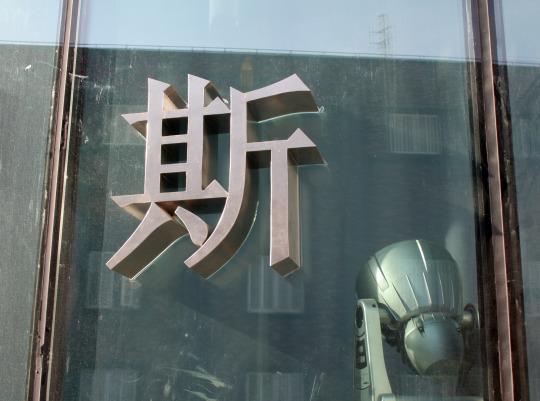
斯 = sī
I photographed this character by itself in Shanghai years ago and now I don’t remember which word it was a part of. Turns out, 斯 is an old character that used to mean “this”, but isn’t much used these days except for phonetic translations, where the si sound comes in handy.
So you might see it in foreign words like Einstein 爱因斯坦 (Àiyīnsītǎn), Slovenia 斯洛文尼亚 (Sīluòwénníyǎ), Oscar 奥斯卡 (Àosīkǎ) or Guinness 吉尼斯 (Jínísī).
One Chengyu (or 4-character idiomatic expression) that uses this character is 慢條斯理 (màntiáosīlǐ), which means slowly or leisurely. For instance, you could use it to say someone always talks and does things slowly: 她说话做事总是慢条斯理的.
#chinese#language#mandarin#chinese characters#hanzi#learn chinese#learn mandarin#chinablr#mandarinblr#langblr#hsk#shanghai#普通话#中文#汉字#汉语
26 notes
·
View notes
Photo
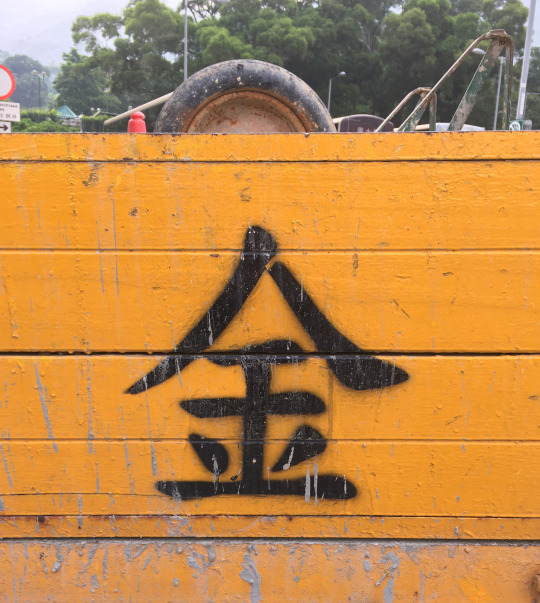
金 = jīn = gold, money, highly respected
300-something words featuring 金, and they’re all shiny and precious! ✨
The first meaning of the caracter is gold, and it’s also associated with terms that are related with money, like finance 金融 (jīn róng), the rent 租金 (zū jīn), a ransom 赎金 (shú jīn) or simply cash 现金 (xiàn jīn).
Naturally, it’s also featured in the name of a lot of animals, plants or anything that is golden. 金鱼 (jīn yú) refers to a goldfish, 金橘 (jīn jú) is a kumquat (aka, a golden tangerine), and 金毛狗 (jīn máo gǒu) is a type of dog with golden fur... can you guess?
As for expressions, how about this one, with a very straightforward meaning: 情比金坚 (qíng bǐ jīn jiān), ie, love is more solid than gold.
Another photo from my friend Iris, in Hong Kong!
#chinese#Chinese Characters#hanzi#language learning#learn mandarin#learning chinese#mandarin#langblr#studyblr#chinablr#shanghai#中文#汉语#汉字#普通话#putonghua
112 notes
·
View notes
Photo
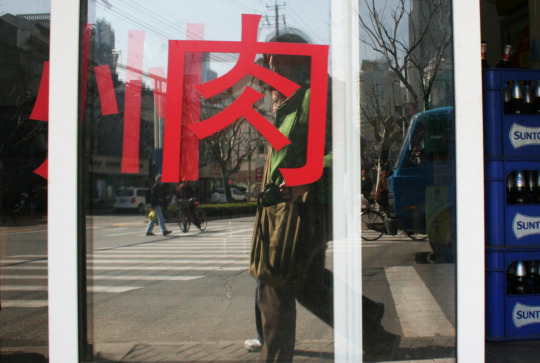
肉 = ròu = meat, flesh
肉 is all about meaty stuff!
鸡肉 (jī ròu) is chicken meat, pork is 猪肉 (zhū ròu), beef is 牛肉 (niú ròu)... basically, one puts 肉 next to an animal to refer to the meat of that animal. Meat can also be lean 瘦肉 (shòu ròu) or fatty 肥肉 (féi ròu), it can be raw 生肉 (shēng ròu), minced 碎肉 (suì ròu) or shaped into meatballs 肉丸 (ròu wán)...
And of course, this character shows up on all menus featuring meat dishes like twice cooked pork 回锅肉 (huí guō ròu) or sweet and sour pork 咕咾肉 (gū lǎo ròu).
The Chinese equivalent of the European “Let them eat cake“ is 何不食肉糜 (hé bù shí ròu mí) — which literally means “Why don’t they eat meat?”. It was said by emperor Hui of Jin when told that his people didn't have enough rice to eat. 🙄
#Chinese#chinese characters#hanzi#learn chinese#mandarin#language learning#langblr#hsk#studyblr#chinablr#china#shanghai#普通话#中文#汉字#汉语
85 notes
·
View notes
Photo
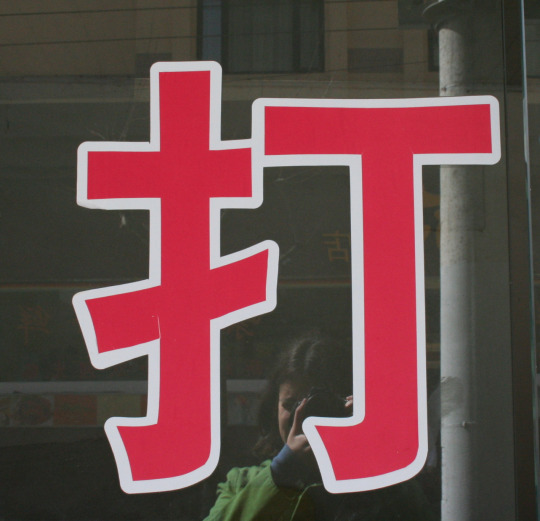
打 = dǎ = to break, to play, to hit, to smash, to fight, to beat, to shoot, to call, to type, to mix up, to fetch, to make...
Ninchanese lists 354 words with 打, and they are a bit all over the place... 😅
A lot of the meanings involve hitting stuff with your hands, like 打死 (dǎ sǐ) or 打杀 (dǎ shā) both of which mean to kill, 打破 (dǎ pò) to smash or 打鼓 (dǎ gǔ), to beat a drum. Typing 打字 (dǎ zì) is also a kind of hitting with your fingers, as is 打扫 (dǎ sǎo) which means to clean... which is basically hitting the broom around?
Others words are related with play, like playing cards 打牌 (dǎ pái), play with a ball 打球 (dǎ qiú) or 打拳 (dǎ quán) to do shadowboxing.
And the rest of the words are a mixed bag, as random as 打坐 (dǎ zuò) to meditate or 打电话 (dǎ diàn huà), to call someone on the phone. We could go on and on...
A funny story: years ago, a reporter asked a passerby on the street what he thought of some sex scandal that was on the news, and the person replied he was just out to “打酱油” (dǎ jiàng yóu), or buy soy sauce. He meant it literally... but since then, the expression became synonym with “minding one’s own business”, a kind of “I don’t really care, I’m just out to buy soy sauce”. 😂
I love how language changes and gains new meanings in interesting ways!
#chinese#mandarin#hsk#chinese characters#hanzi#learn chinese#language learning#langblr#studyblr#chinablr#汉字#shanghai#汉语#普通话#中文
59 notes
·
View notes
Photo
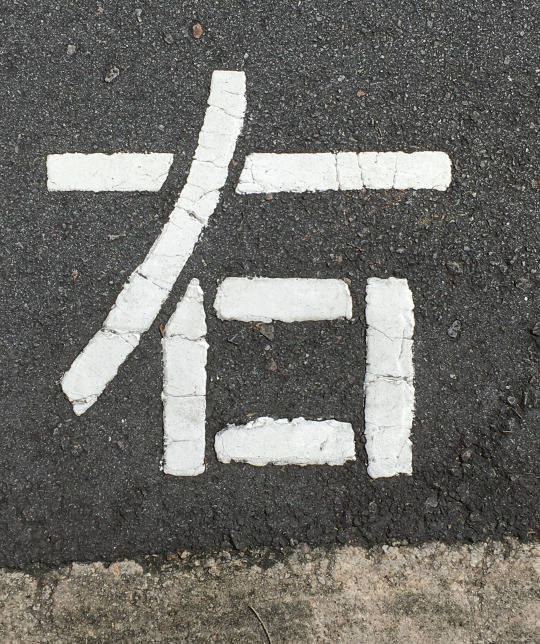
右 = yòu = right, right-wing politics
This one is pretty straightforward: 右 is the physical right side of things. 右手(yòu shǒu) is your right hand, 右边 (yòu bian) of something is the right side of it, and 右箭头 (yòu jiàn tóu) is an arrow that points to the right.
左右 (zuǒ yòu) is literally left-right, and it means “more or less”. So for instance, if you want to tell your friend you’ll come over around 10, you can say 我十点左右来 (wǒ shí diǎn zuǒyòu lái).
On the political side, 右派 (yòu pài) is the right-wing party, and 极右翼 (jí yòu yì) would be the extreme right.
And if you’re in Hong Kong, don’t forget to look right before crossing the road!
#chinese#hsk#chinese characters#hanzi#pinyin#learn chinese#learn mandarin#language learning#china#hong kong#langblr#studyblr#chinablr#汉语#汉字#中文#普通话
104 notes
·
View notes
Photo
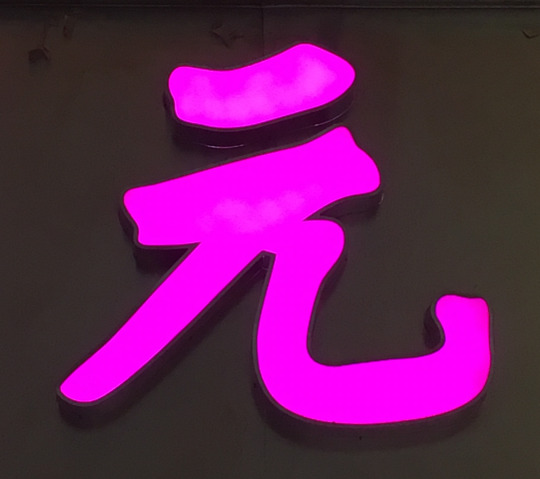
元 = yuán = money, unit of currency
元 is a phonetic component in many other characters, but by itself, it’s about money — in China, this is the character you put on the price tag, after the price value. If you’re talking about euros, that’s 欧元 (ōuyuán), and dollars are 美元 (měiyuán).
Beyond these though, there are lots of other random words that use this character. Many are related to computing: 1 bit is a 位元 (wèi yuán), a pixel is a 像元 (xiàng yuán) and components are 元件 (yuán jiàn). Some are related to other chemistry, like chemical elements 元素 (yuán sù) or methanol 一元醇 (yī yuán chún). And some come into language territory, such as vowel 元音 (yuán yīn) or a diphthong 双元音 (shuāng yuán yīn).
Confused yet? That’s ok! As they say, 行行出状元 (háng háng chū zhuàng yuán) — a master appears in every trade, meaning, if you put enough love and diligence into any task, you too can produce outstanding achievements! 💪
Another nice photo from my friend Iris, in Hong Kong. :)
#chinese#chinese characters#hanzi#pinyin#learn chinese#mandarin#language learning#langblr#hsk#studyblr#chinablr#shanghai#普通话#中文#汉字#汉语
25 notes
·
View notes